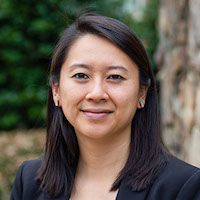New graduate certificate preps students to innovate for public good
May 26, 2020
Ask any UNC-Chapel Hill graduate student to describe their educational experience, and there’s a good chance you’ll hear them mention something associated with the words “depth” or “expertise.” In-depth knowledge. Exhaustive research. Specialized skill development.
Yet, the ones who aim to help solve some of the world’s most critical social and scientific challenges, quickly find clarity on what it takes to make an impact: The problems they want to address feel too big for any single solution.To help graduate students learn to work effectively across disciplines to solve complex problems, the University of North Carolina at Chapel Hill is launching the Carolina Graduate Certificate in Innovation for the Public Good (CIPG). The program teaches students about modern changemaking and helps them practice the skills they need to collaborate with others, partner with government and communities, and tackle challenges in new ways.
“We wanted to fill the gap in offerings on campus to give graduate students the mindset, methods and tools to be effective working across sectors and disciplines to solve complex economic, social and ecological problems,” says Melissa Carrier, CIPG inaugural advisory board chair and director of the Office of Social Innovation at Innovate Carolina. “The certificate aims to give students the tools needed, so no matter where they go or what they do, they can problem solve with others to address the interrelated issues and begin to create large-scale change.”
Innovate Carolina, UNC-Chapel Hill’s University-wide initiative for innovation and entrepreneurship, worked to develop CIPG in partnership with three sponsoring academic units that will administer the certificate on a rotating basis. The certificate will be administered by the Gillings School of Global Public Health for the first four years. It will then rotate to the College of Arts and Sciences (Public Policy) for four years, followed by a rotation at the School of Education.

Dr. Kurt Ribisl
“I am particularly excited about this new certificate program, which will provide specialized training for students eager to make a difference – whether it is in their local communities or in a global context,” said Kurt Ribisl, PhD, Jo Anne Earp Distinguished Professor and chair of the health behavior department at the Gillings School, who also will work with Carrier on the CIPG advisory board. “Students at Carolina are passionate about making meaningful change in the world, and this new certificate will provide them with specific skills to make it happen. They will join other like-minded students and faculty as they apply design thinking and other principles to improve the human condition.”
Open to masters and doctoral students in any of the University’s graduate programs, including the professional schools and College of Arts and Sciences, the program will give students experience with methods that they can apply immediately to their thesis or dissertation work. CIPG also equips students with career-ready skills they can use when working on multi-disciplinary teams in businesses, non-profits and government agencies that increasingly demand the ability to apply cross-sector, community-engaged practices.
“The credential program is an efficient, value-added channel to provide graduate students with skills to match their post-graduation aspirations to effect meaningful change,” said Steve Knotek, associate professor at the School of Education and CIPG advisory board member. “Students enter grad school wanting to learn new skills in service of participating in the larger good. The certificate program offers targeted training to support graduates’ agency to seek, understand and foster social change in their chosen fields.”
To earn the nine-credit certificate, students must complete one required core course (HBEH 748: Design Thinking for the Public Good), plus two additional courses selected from among a subset of electives offered through a variety of departments and professional schools. The courses emphasize evidence-based, creative problem-solving approaches and early, team-oriented methods that focus on discovering the needs and perspectives of customers and communities. Students can apply up to three credit hours from CIPG courses toward their graduate degrees. There is no prerequisite for the certificate, and it initially will be offered only on campus. Distance learning and/or non-degree seeking options may be considered in the future.

Dr. Liz Chen
Liz Chen, PhD, an assistant professor in the Department of Health Behavior at Gillings and the design thinking lead at Innovate Carolina, will serve as the first director and faculty lead for CIPG. She also is developing and co-teaching the core course, which will be offered for the first time in the spring 2021 semester.
“The core course will give students the opportunity to build explicit group work skills so they can learn and apply design thinking approaches and methods on interdisciplinary teams,” said Chen. “It also will incorporate a lot of internal reflection so students can think critically about the role of design thinking and their role as design thinkers, while contributing to their own fields.”
The ability to develop creative problem-solving skills was one of the reasons public health master’s student Emily Skywark says that she came to Carolina. Having experienced the relevance of design thinking in her own field, she’s now working with Chen to co-design the core course, which she believes will be beneficial to a wide range of students.
“I am excited for the potential of this new certificate to bring creative graduate students together from across the University to innovate and co-create solutions to social problems outside of the confines of traditional disciplines,” she said. “This certificate, and the new design thinking course within it, is a great fit for any graduate student who appreciates being challenged to solve complex problems and working through multiple lenses to innovate revolutionary user-centered solutions.”
The certificate already is generating broad enthusiasm, and students can begin enrolling in fall 2020. For graduate students who are interested in receiving updates about the certificate, Chen and Carrier ask that they indicate their interest by filling out a short form before the official application launches in August. Because the inaugural certificate class will be kept to 40 students or fewer, those who are strongly interested are encouraged to fill out the form and to apply early.
In addition to the three sponsoring academic units, other schools offering courses as part of the certificate include the Hussman School of Journalism and Media, Kenan-Flagler Business School, School of Government, School of Information and Library Science, and School of Social Work.
The certificate’s courses offered across departments and schools will resonate strongly with students enrolled in a variety of programs who are interested in making a positive public impact, noted Dan Gitterman, Duncan MacRae ’09 and Rebecca Kyle MacRae Professor and chair of the public policy department.
“UNC public policy faculty and students are all about the public good. They and many of our colleagues and peers in other graduate programs in the College of Arts and Sciences are focused on researching and addressing our most pressing national and global challenges,” said Gitterman. “The Innovation for Public Good Graduate Certificate offers these students a new set of perspectives and tools to solve our most intractable problems.”
Gitterman, who also will serve on the certificate program’s board of advisers, adds, “Perhaps most importantly, they will bring students from across the College of Arts and Sciences and other professional schools to cross boundaries and engage in new interdisciplinary design thinking. Our PhD students and forthcoming BA/MPP dual degree students will be active participants.”
The core course and electives will structure opportunities for students to reflect on the design thinking process and their role engaging with communities as co-designers.
“Through this grounding and training, we expect this will help students incorporate these methods into their current and future work,” says Carrier. “We hope to see the CIPG tie into their thesis work or into their research discipline – and, ultimately, to see these methods seep back into their fields of professional practice.”
For more background on the graduate certificate, the full course list and updates on timing, visit the certificate overview page.
Contact the UNC Gillings School of Global Public Health communications team at sphcomm@unc.edu.
